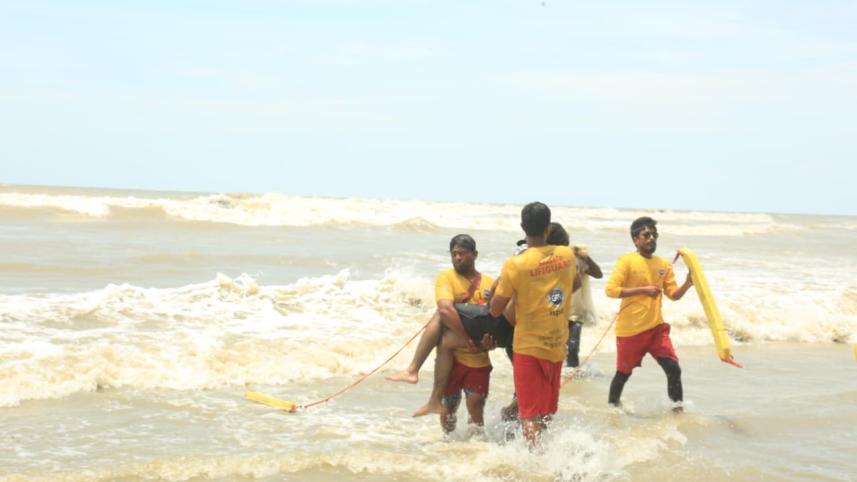Cox’s Bazar: Fund crunch threatens lifeguard operations

Rip currents and shifting sand channels have made three of Cox's Bazar's most popular beach zones -- Kolatoli, Sughandha and Laboni -- increasingly treacherous for tourists.
In the past eight months alone, 11 people have drowned while bathing in these waters, with another 11 narrowly rescued from being swept out to sea.
To address such tragedies, private group Sea-Safe Lifeguard has been providing rescue services for over a decade. But the initiative is now on the brink of collapse due to a funding crisis.
Supervisor Sifat Saifullah said, "If the service shuts down, the risk for tourists will rise even further."
According to sources, Sea-Safe Lifeguard will end its operations on September 30. From the following day, there will be no trained rescue personnel on Cox's Bazar beach.
The tourism ministry has instructed the Cox's Bazar district administration to sustain lifeguard operations through contributions from local hotels, motels and guesthouses.
On September 17, Joint Secretary AKM Moniruzzaman issued a letter directing the deputy commissioner to arrange lifeguards under this model.
Deputy Director of Cox's Bazar Local Government Nazim Uddin Ahmed said, "After informing the ministry about the possible shutdown, we were told to continue operations through alternative means. We have already begun taking steps."
Under the plan, larger hotels would finance the salaries of three lifeguards each, while smaller establishments would cover one each. Existing trained lifeguards are expected to be prioritised.
But the hotel sector has voiced concern.
Cox's Bazar Hotel and Resort Owners Association General Secretary Mukim Khan said, "Although the ministry wants us to finance 27 lifeguards, covering Tk 14–15 lakh per month is unrealistic. Very few owners have agreed, and even if they do, it will take time. Without a clear policy, such funding is unsustainable."
Sea-Safe Lifeguard's regional manager Imtiaz Ahmed said the service began in 2012, supported by the UK-based Royal National Lifeboat Institution (RNLI).
He said the RNLI officially ended the project in December last year but extended it twice at the request of the district administration. With no further support, operations will cease after September.




 For all latest news, follow The Daily Star's Google News channel.
For all latest news, follow The Daily Star's Google News channel.
Comments